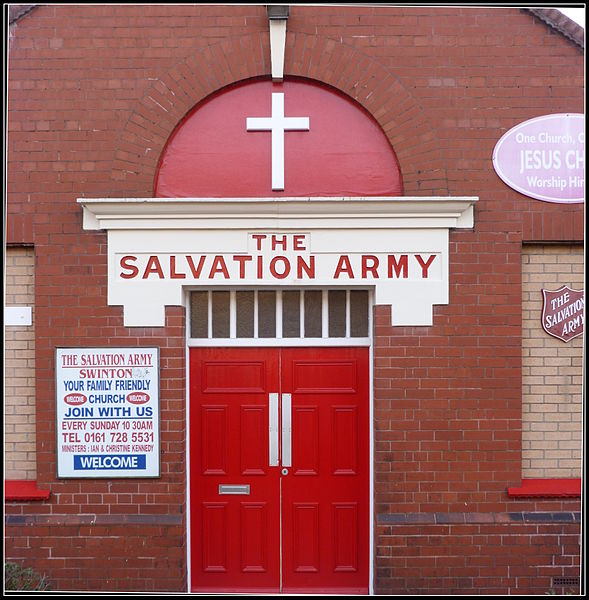
Settlement in Lown v. Salvation Army
At long last, the case of the employees who sued the New York City Salvation Army, alleging religious job discrimination, is over. On March 18, 2014, the Salvation Army signed a settlement agreement in the lawsuit that was filed in 2004 by the New York Civil Liberties Union. This branch of the Salvation Army had, for many years, paid little attention to the religious qualifications of people hired to offer services in New York City (in distinction from the Salvationist beliefs required of ministerial employees). Those services were largely funded by federal, state, or local government dollars. When it did begin to insist that all of its employees be aligned with its Gospel beliefs and show evidence of faithful church attendance, several of the staff sued, claiming that religious hiring is illegal and unconstitutional in government-funded services. In the March settlement, the Salvation Army agreed to pay $450,000 and to stop certain practices.
But the settlement is not the big anti-religious hiring victory the New York Civil Liberties Union and other critics of the faith-based initiative want everyone to believe. A New York City federal judge has already ruled, in 2005, that religious hiring by the Salvation Army was not a constitutional violation even though the services were almost entirely funded by government. Indeed, the various funding programs did not themselves ban religious hiring by religious organizations. This ruling–a major vindication of the religious hiring freedom–stands, no matter what the later settlement might be.
And the settlement itself is not a sweeping slap-down of the Salvation Army. The Army has agreed not to engage in “unlawful” discrimination when it hires and fires (religion is not listed as a prohibited characteristic). The Army cannot force employees, whose time is funded by government dollars, to participate in religious activities (that was already illegal). The Army must be sure that services are provided without mixing in religious activities or engaging in religious discrimination against beneficiaries (these also are existing rules, because of the government funding). On the other hand, the settlement states that the Salvation Army can require the employees “to conduct themselves in a manner consistent with the religious and charitable policies and principles of The Salvation Army.”
So, basically, the Salvation Army agreed to follow the law and did not concede that it had been violating the law.
